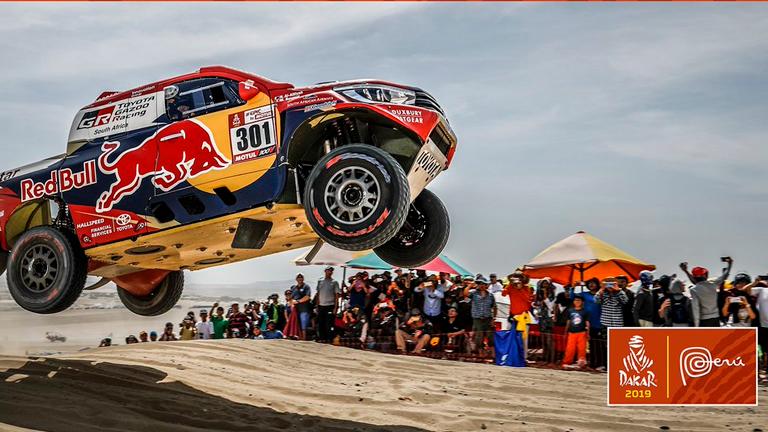PARIS: Dakar Rally organisers defended their choice of Saudi Arabia as hosts as they unveiled the 2021 route of the most gruelling event in motorsport's calendar on Wednesday.
Launched in 1979 between Paris and the Senegalese capital Dakar the celebrated endurance challenge moved to the kingdom for the first time this year after a decade in South America, sparking angry reaction from human rights organisations.
"We have signed in to a development programme in Saudi Arabia that is moving towards more openness," said Dakar boss David Castera.
"And we aren't the only ones to come here - football, Formula E, boxing, and next year Formula 1, have also chosen the Saudi kingdom.
"We believe that it's more useful to be here and to talk about what's going on than to criticise from afar."
The 2021 Dakar from January 3-15 starts and finishes in Jeddah over an almost entirely new route through the desert and along the Red Sea.
The 43rd edition sees a new class joining the collection of cars, bikes, quads, trucks, buggies and SSVs – with the Dakar Classic category confined to vehicles from the 1980s and 90s.
The Dakar is no stranger to tragedy, with last year's rally claiming the lives of motorcyclists Paulo Goncalves and Edwin Straver.
A raft of new safety measures include compulsory airbag vests for motorbike riders, aural warnings that will notify competitors in the approach to potential dangers with designated "slow zones" limiting the speed to 90km/h in especially tricky sectors.
The coronavirus pandemic forced organisers to delay plans to hold stages in neighbouring states Oman, the United Arab Emirates and Jordan.
Competitors and anyone connected with the rally will have to quarantine for 48 hours on arrival in Saudi Arabia, with regular testing in line with the example set by Formula One.
Former rally world champion Carlos Sainz won this year's Dakar and another luminary from the rally world, Sebastien Loeb, returns for 2021 hoping to win his first Dakar at the fifth attempt.
Looking to the years ahead Castera mapped out a vision of a greener Dakar with, by 2030, the entire motorised caravanserai powered by hydrogen. – AFP









